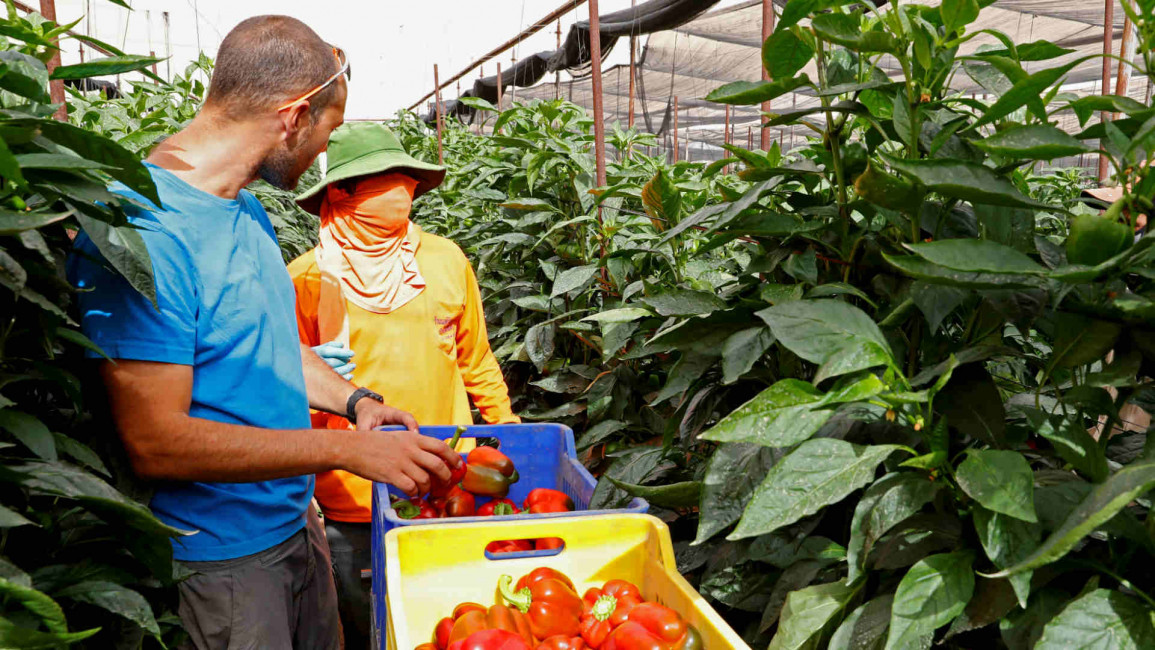African, Asian students had to work on farms for Israeli university degrees
African and Asian students at Tel Aviv University say they were required to work more than 12 hours-a-day in labour intensive jobs for their agricultural training programme, with just one month of the 15-month course spent studying at the university.
Tel Aviv University partners with the company Development and Construction in the Arava, which operates an organisation called the Arava International Center for Agricultural Training in the south of Israel, Haaretz reported.
After the first month of studies at the university in July, students had two days a week of studies in the Arava and then three to four days of work on Arava moshavim, for 12 or more hours a day.
At the moshavim - a moshav is an Israeli town/settlement with farms - students worked in jobs that had little to do with their academic studies.
A., a Bachelor of Science graduate from Vietnam, was initially thrilled to take part in the master's programme at Tel Aviv University for which he paid 22,000 shekels (about $6,000) in tuition. He was aware the programme had a practical component administered by a commercial company.
"I feel humiliated, exploited," he told Haaretz, "I worked at harvesting and planting alongside workers from Thailand. Sometimes we worked 16 hours-a-day and nobody tried to teach me anything".
Seven of the 16 students in the programme spoke to Haaretz about the discrepancy between what they were told they would study and what the programme actually entailed.
Samson, who came from Nigeria with a Bachelor of Science in Microbiology, skipped the programme's graduation ceremony to testify at the Be'er Sheva District Labour Court.
His lawyer, Michal Tager, head of the workers' rights group Kav La'oved, said Samson was exploited and employed illegally. The student visas they were on prohibited the students from working.
Samson detailed how the day after he landed he was put to work packing dates and planting melons for 12 to 16 hours -a-day.
"No learning was involved. Usually the Thai laborers showed us what to do. Every time large sums were taken out of my pay."
He also told the court he was not properly compensated for overtime, expenses and benefits nor informed of the conditions of his employment in the first place.
|
|
Tel Aviv university has received a complaint from Kav La'oved but it has not yet reviewed the programme. The attorneys wrote to senior university officials that the course "is in fact used to illegally hire students on farms in the Arava under particularly insulting conditions".
The letter received no response as the university claims the master's degree committee cannot deal with "claims about issues that are not academic".
The programme information sheets given to students says they "may" work "up to" three days a week but most had to work for four. A student from Kenya told Haaretz he was asked before his arrival if he would work more than eight hours a day.
Students complained throughout the programme but were not responded to, according to Samson.
"We were simply exploited... They saw us as laborers, like the Thais... and usually the Thais were paid more. There was no learning here. For them we were slaves. We don't deserve this just because we come from Asia and Africa."
The Arava International Center for Agricultural Training responded that the programme began with the goal of combining an academic degree with exposure to advanced applied agriculture in the Arava.
The Company for Development and Construction in the Srava said the program gives students valuable knowledge and that claims of overwork were "mistaken".
"A master's degree in food security - what does that have to do with a packing house? I lifted crates of five kilos 13 stories from 6am to 7pm," Samson replied.
Follow us on Twitter: @The_NewArab



